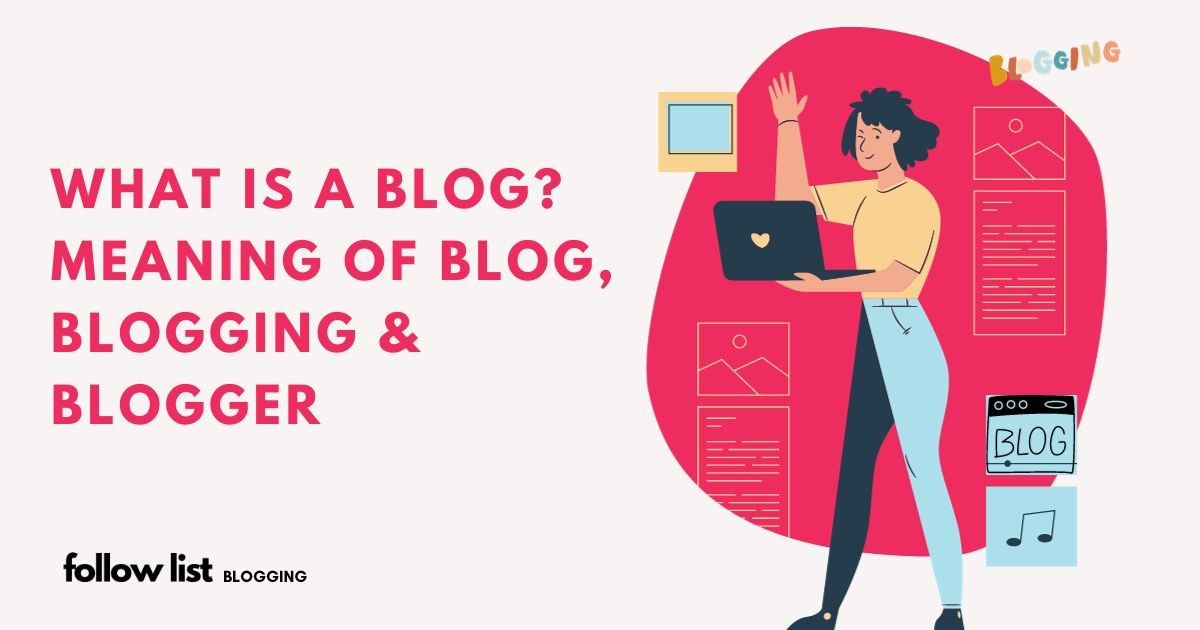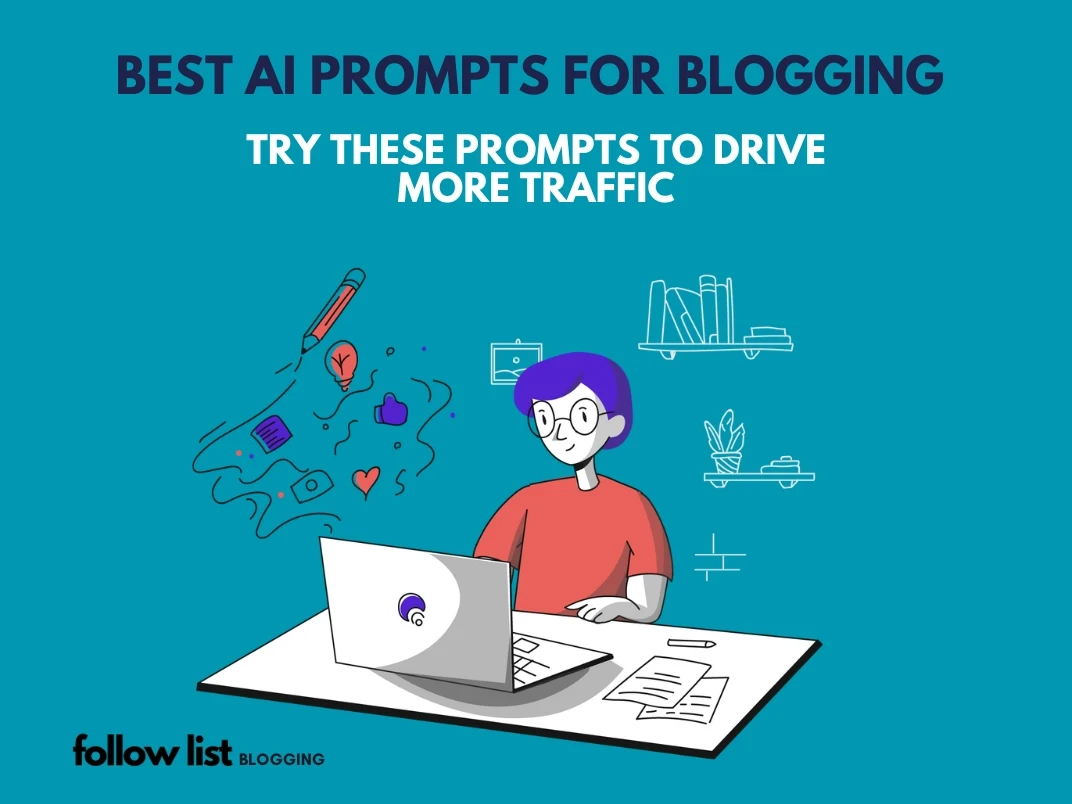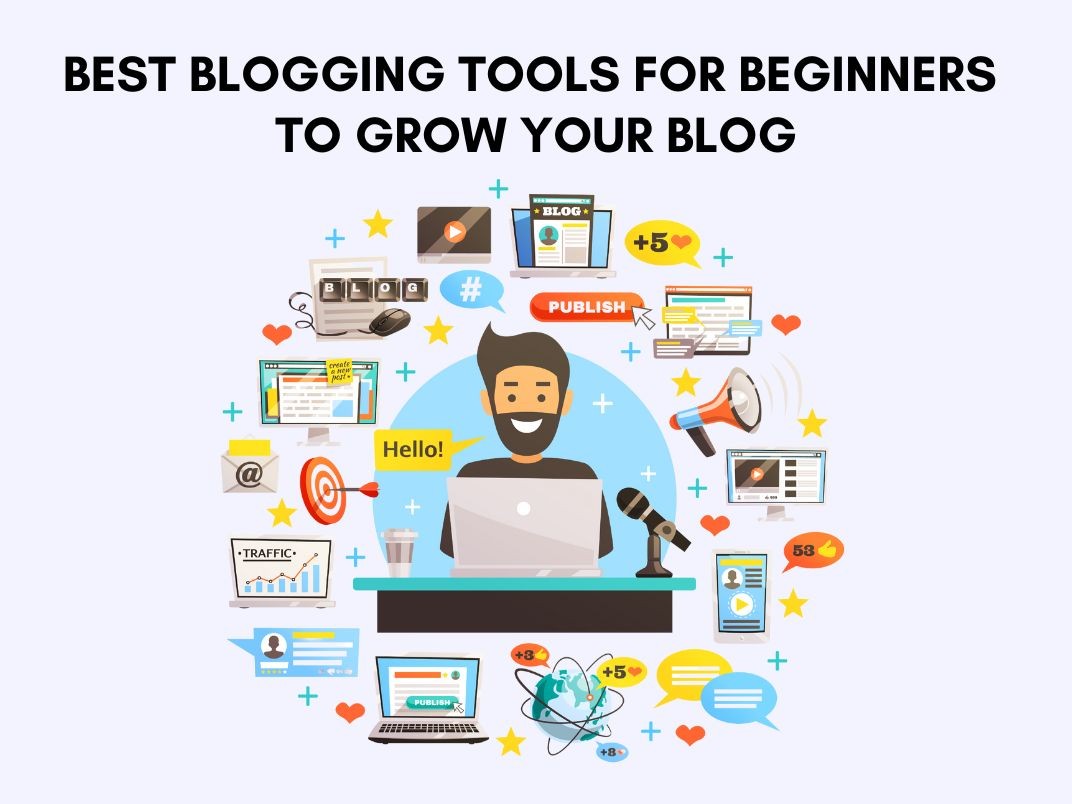
Table of Contents
Listen to this article
What is a Blog? - Meaning of Blog, Blogging & Blogger
In today's digital age, blogs have become an integral part of our online experience. But what exactly is a blog? Let's explore the definition, meaning, and purpose of blogs, as well as the role of bloggers and the benefits they offer.
Create an image of a digital notebook with the title "Blog" on the front cover, surrounded by various electronic devices like laptops, tablets, and smartphones. Inside the notebook, depict a series of written entries, each labeled with a different topic or theme, such as travel, fashion, food, or technology. Show the notebook being accessed and updated by a person sitting in front of their computer or mobile device. Use bright colors and bold outlines to highlight the contemporary and dynamic nature of blogging as a form of digital publishing.
Key Takeaways:
-
A blog is a regularly updated web page that provides insight into a certain topic.
-
Blogs can be personal or business-oriented and are written in a conversational style.
-
Bloggers use blogs to connect with their target audience and share information.
-
Starting a blog involves choosing a domain name, a blogging platform, and creating engaging content.
-
Blogging offers opportunities for personal expression, information sharing, and business marketing.
Benefits of Blogging for Personal Use and Business
Blogging offers numerous benefits for both personal use and businesses. Whether you're an individual looking to express yourself or a company aiming to establish an online presence, blogging can be a powerful tool. Let's dive into the advantages of blogging in more detail:
1. Personal Use
When it comes to personal blogging, individuals can enjoy a range of benefits:
-
Self-expression: Blogging provides a platform for expressing thoughts, ideas, and experiences, allowing individuals to showcase their creativity and unique perspectives.
-
Building connections: Through blogging, individuals can connect with like-minded people who share similar interests, fostering meaningful relationships and communities.
-
Personal growth: Blogging encourages self-reflection and introspection, leading to personal growth and development.
To enhance the personal blogging experience, individuals can include captivating visuals. For example, illustrating a travel blog with breathtaking images can help transport readers to different destinations.
2. Business Blogging
For businesses, blogging offers a wide array of advantages:
-
Increased visibility: By regularly publishing informative and engaging content, businesses can enhance their online presence, making it easier for customers to find them.
-
Target audience connection: Blogging enables businesses to connect with their target audience on a deeper level, building trust and loyalty.
-
Website traffic boost: Engaging blog posts attract visitors to a company's website, increasing overall traffic and potential leads.
-
Establishing niche authority: Consistently sharing valuable industry insights and expertise positions a business as an authority within its niche.
-
Lead generation: Blogs serve as effective lead generation tools, as businesses can showcase their expertise, gain trust, and incorporate strategic call-to-action strategies to capture high-quality leads.
Blogging also allows businesses to stay up-to-date with industry trends, address customer concerns, and engage with their audience. By incorporating captivating images, businesses can enhance their blog's visual appeal, supplementing their content with relevant visuals.
Get benefits of blogging as both individual and business person as it provides best platform for personal expressions, connections, expertise establishment, and brand growth. Absorb the power of blogging to achieve your goals and make a meaningful impact in the society.
What is Blogging?
Blogging is the act of creating informative and engaging posts on a blog. It involves equipping a web page with tools to facilitate writing, posting, linking, and sharing content.
Blogging allows individuals to share their knowledge, insights, and experiences with a target audience. It emerged in the early 2000s and has since become a mainstream platform for information sharing, opinion forming, and building online communities.
One of the main purposes of blogging is to connect with an audience and provide them with valuable information. Whether it's sharing personal stories, offering tips and advice, or discussing niche topics, blogging allows individuals to establish themselves as experts or thought leaders in their field.
Furthermore, blogging is of several types. Different types of blogs serve different purposes like earning through blogging, getting famous, lead generation, spreading awareness etc. Bloggers can earn money through various means, such as advertising, affiliate marketing, selling digital products, and using blogs as content marketing tools for their businesses.
Who is a Blogger?
A blogger is someone who runs and controls a blog. He is takes responsibility of sharing their opinions and knowledge on topics of his niche. Bloggers can be individuals, professionals, or businesses. They use their blogs as a platform to share their thoughts and expertise with a target audience. Through blog posts, bloggers engage and connect with readers, creating a space for discussion and knowledge sharing.
Over time, bloggers have gained fame and recognition for their unique perspectives and valuable insights. Many individuals have turned blogging into an alternative career or a side gig, leveraging their expertise to build a personal brand and generate passive income.
Bloggers are not constrained by physical boundaries. The internet allows them to reach a wide audience, breaking down geographical barriers and connecting with readers globally. This mobility and reach make blogging a powerful tool for communication and knowledge dissemination.
Whether it's a personal blog sharing life experiences, a professional blog providing industry insights, or a business blog promoting products or services, bloggers play a vital role in shaping online communities and influencing the digital landscape.
Types of Bloggers
-
Personal bloggers: These individuals share their personal experiences, opinions, and perspectives on various topics such as travel, lifestyle, parenting, and more.
-
Professional bloggers: These bloggers focus on a specific niche or industry. They provide valuable insights, tips, and expertise to their audience within their chosen field.
-
Business bloggers: Many businesses utilize blogging as a content marketing strategy to establish their authority, engage with their target audience, and drive traffic to their website.
-
Guest bloggers: These individuals contribute posts to other blogs within their industry, exchanging exposure and reaching a new audience.
-
Microbloggers: Microbloggers typically use social media platforms like Twitter, Instagram, or Tumblr to share short-form content or snippets of their thoughts and experiences.
Each type of blogger brings a unique perspective and expertise to their blog, contributing to the diverse and rich blogosphere.
How to Start a Blog?
Starting a blog is an exciting journey that allows you to share your passions, knowledge, or business expertise with the world. Whether you want to create a personal blog or establish a professional online presence, here is a guide about how to start a blog to help you get started like an expert:
1. Choose a Domain Name and Blogging Platform
The first step in starting a blog is choosing a domain name, which is the address where your blog will be located. Select a name that is memorable, descriptive, and relevant to your blog's purpose. Once you have a domain name, you'll need to decide on a blogging platform to host your blog. WordPress.org is a popular choice for its flexibility, customization options, and extensive plugin ecosystem.
2. Select a Reliable Web Hosting Service
To ensure your blog is accessible and performs well, it's important to select a reliable web hosting service. Bluehost is a highly recommended hosting provider for new bloggers due to its affordable plans, excellent customer support, and user-friendly interface. A good web host will ensure your blog's security and safety, loads quickly, and has minimal downtime.
3. Create Engaging and Informative Content
Content is the heart of any successful blog. Focus on creating high-quality, engaging, and informative posts that will attract your readers. Choose topics that are relevant to your target audience and showcase your expertise. Use keywords strategically throughout your blog posts to improve search engine visibility and attract organic traffic.
Remember to write in a conversational tone and make your content easy to read and digest. Use headings, bullet points, and images to break up your text and enhance readability.
4. Build Credibility and Visibility
Building credibility and visibility for your blog takes time and consistent effort. Engage with your readers by responding to comments, encouraging social sharing, and promoting your blog on social media platforms. Connect with other bloggers and industry influencers by guest posting, participating in collaborations, or attending relevant events. Collaborating with others in your niche can help expand your reach and attract new readers.
5. Monetize Your Blog
If you're looking to generate income from your blog, there are various monetization options available. You can explore advertising opportunities, join affiliate programs, create and sell digital products or online courses, or offer premium content or services. Remember, monetization should be approached thoughtfully and integrated seamlessly into your blog's overall value proposition.
Starting a blog is an exciting adventure that allows you to share your passions, connect with others, and even generate income. Follow these steps, keep creating valuable content, and stay committed to your blogging journey. With time and dedication, your blog can become a valuable resource for your readers and a platform for personal and professional growth.
Conclusion
Blogging has emerged as a powerful platform for personal expression, information sharing, and business marketing. With the rise of blogs, individuals and businesses have found a multitude of benefits in this digital era.
One of the key advantages of blogging is the ability to connect with a target audience. So to start your blogging follow our blogging tips given in this article and create well-written and engaging content, establish establish blogger's rapport with their readers, facilitate meaningful conversations, and hence create a dedicated community around you online.
Moreover, blogging allows individuals and businesses to showcase their expertise and establish authority in their respective fields. By consistently providing valuable and insightful content, bloggers can position themselves as trusted sources of information, building credibility with their audience.
Lastly, blogging can also be a source of revenue generation. Through various monetization strategies, such as advertising, affiliate marketing, and selling digital products, bloggers can turn their passion into a sustainable income stream.





